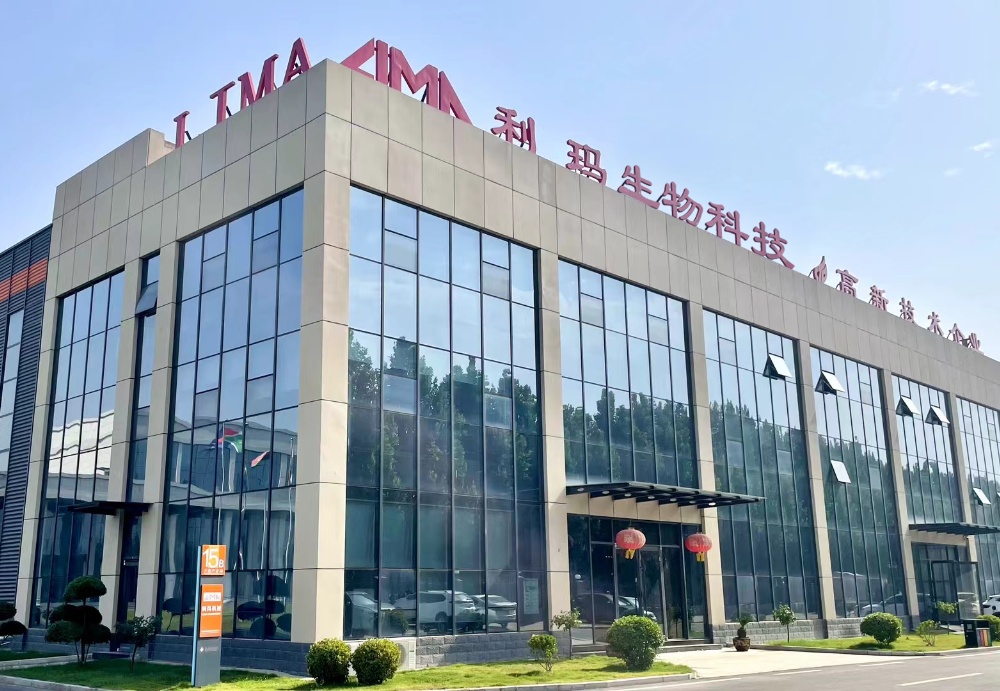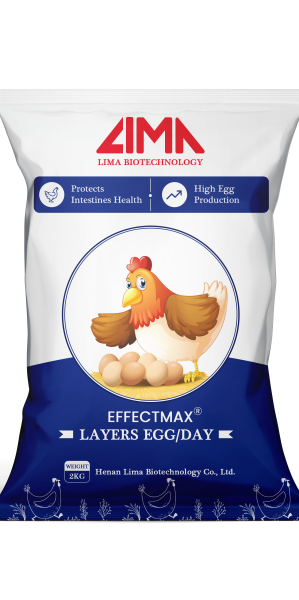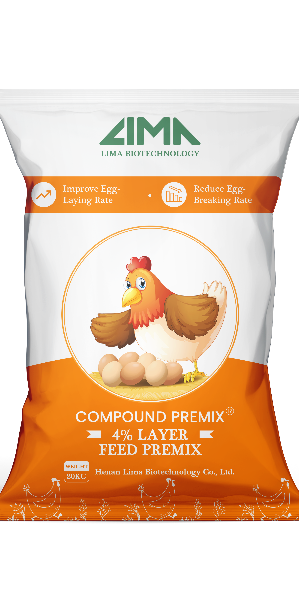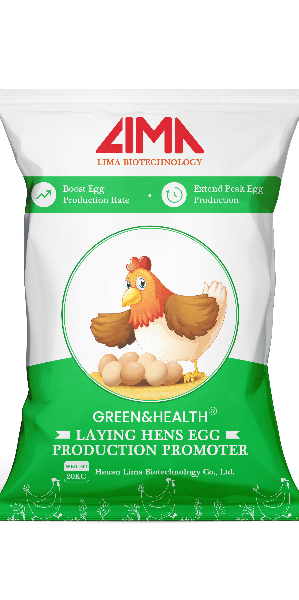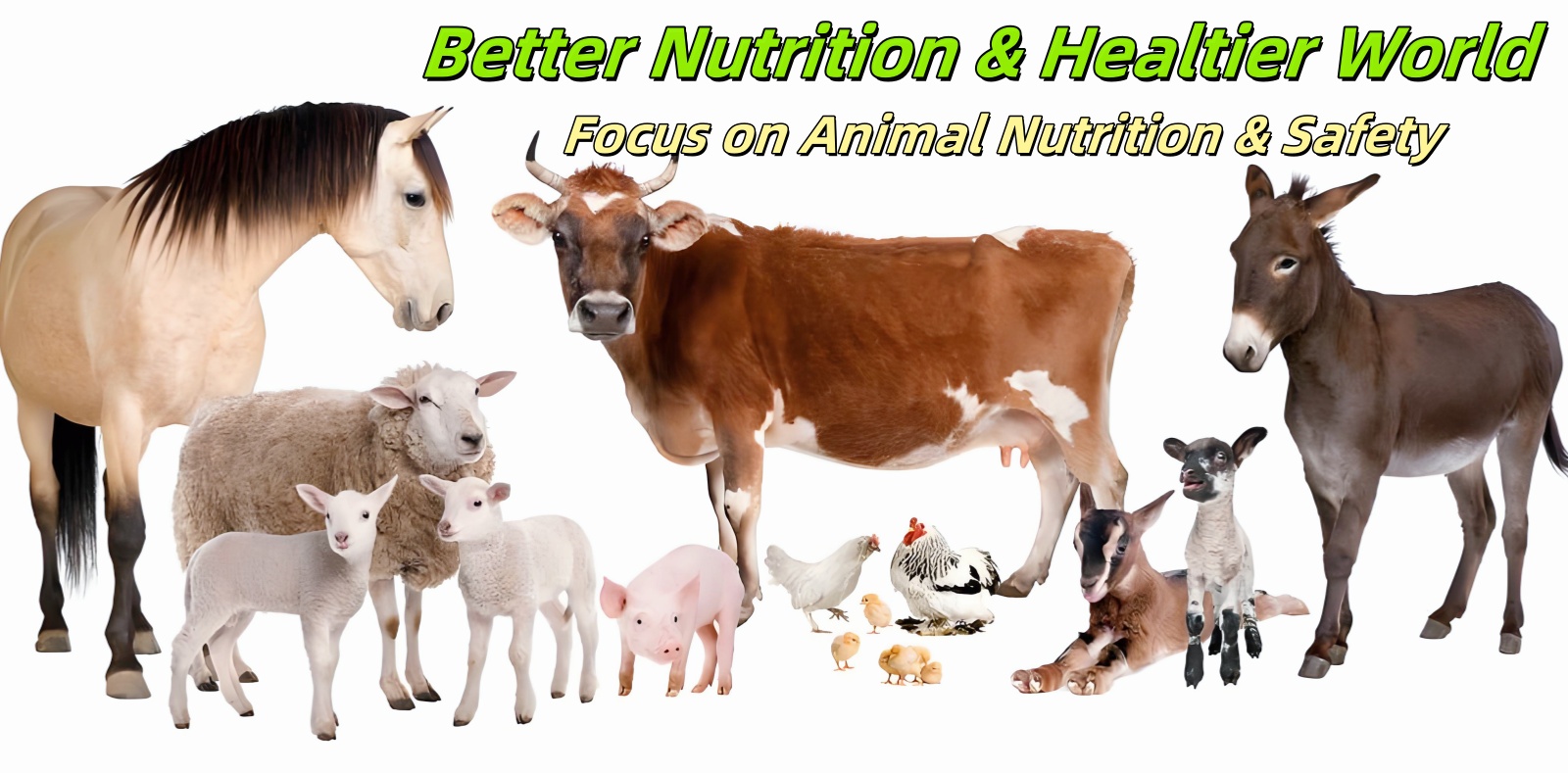Egg production in laying hens is closely linked to their diet. A scientifically balanced and reasonable diet is the key to enhancing egg production and ensuring egg quality. During the laying period, hens require a significant amount of nutrients to maintain physiological functions and egg formation. Therefore, providing them with adequate and balanced nutrition is of utmost importance. This article will delve into the science of feeding from various angles, including core nutritional requirements, selecting high-quality feed, the role of supplements, other feeding techniques, and common misconceptions.
Core Nutritional Requirements for Laying Hens
To maintain high egg production and good egg quality, laying hens must meet their core nutritional requirements. These nutrients work together to support the hens' growth, development, and egg-laying processes.
Protein
Protein is one of the most important nutritional factors for laying hens, a fact supported by numerous scientific studies. Feathers of laying hens contain 75% protein, and eggs themselves are concentrated sources of protein, with both egg whites and yolks rich in high-quality protein. Additionally, protein is essential for the growth, metabolism, and other life processes of laying hens.
If their diet lacks sufficient protein, it not only affects their own growth and development but also leads to reduced layer egg booster production and lower egg quality. Sharpes Hi-Lay Pellets contain meat and bone meal, which is an excellent protein source for laying hens, effectively meeting their protein requirements and supporting their growth and egg production.
Carbohydrates
Carbohydrates are the primary energy source for laying hens. Like many organisms, the life activities of laying hens require energy to function, and carbohydrates are the key substances that provide this energy. Poultry pellets typically supply carbohydrates to laying hens through starch and non-starch grains.
Different types of carbohydrates have distinct metabolic processes and energy-providing mechanisms within laying hens. Therefore, in laying hen feed, a reasonable combination of different carbohydrate types—as we have done in poultry pellets—can provide dietary diversity for laying hens, ensuring they receive a steady and stable energy supply to meet their daily activity and egg-laying needs.
Vitamins and Minerals
Vitamins and minerals also play a crucial role in egg production. High-quality chicken feed typically contains a variety of essential vitamins and minerals required for egg production. Among these, calcium, phosphorus, and vitamin D are particularly important.
Calcium is a key element in eggshell formation; if laying hens are deficient in calcium, eggshells may become fragile and brittle, or even result in shell-less eggs; Phosphorus is important for bone development and energy metabolism in laying hens; Vitamin D helps promote the absorption and utilization of calcium and phosphorus. These three nutrients work together to maintain bone strength in laying hens and ensure normal egg production.
Water
Water is an indispensable component of laying hens' nutritional needs and plays multiple important roles in their physiological activities. Water not only maintains normal hydration in laying hens but also significantly influences physiological processes such as digestion, absorption, and metabolism.
Additionally, water is closely related to feed intake. If laying hens do not receive sufficient water, their appetite decreases, leading to inadequate feed intake and ultimately affecting egg production. Therefore, providing laying hens with adequate, clean water is a fundamental requirement for ensuring their health and egg production.
Energy
The energy content of feed is equally important as its protein content. Laying hens require a significant amount of energy during the egg-laying process, so the chosen feed must provide sufficient energy. Ideally, feed should be formulated with a balanced combination of energy-dense grains and protein sources. For example, while wheat is energy-dense, it has low protein content and lacks essential amino acids, making it insufficient on its own to meet the nutritional needs of laying hens.
Additionally, when feeding egg-laying chickens food scraps, their energy content must also be considered. While egg-laying chickens may enjoy these foods, relying solely on green food scraps does not always provide the key nutrients needed for egg production and growth.
The best Feeds to Enhance Egg Production
In addition to meeting the core nutritional needs of egg-laying chickens, providing them with specific feeds can also help improve their egg production and egg quality. These feeds can add diversity to the diet of laying hens and supplement additional nutrients.
Fresh Leafy Vegetables
Fresh leafy vegetables are an excellent choice, such as kale, spinach, and clover. They are rich in various vitamins, minerals, and dietary fiber. These nutrients not only provide additional nutrition for laying hens but also improve the taste and nutritional quality of eggs, making the eggs more delicious and nutrient-rich.
Fruits and Vegetables
Fruits and vegetables can also bring rich variety to the diet of laying hens, such as berries, melons, apples, carrots, and bell peppers. Different fruits and vegetables contain different nutritional components and flavor compounds. Adding them to the diet of laying hens not only increases dietary diversity but can also influence the flavor of eggs to some extent, giving layer egg booster production a unique taste.
High-quality Grains
High-quality grains also have a positive effect on egg production in laying hens. Whole grains such as oats, barley, and corn are rich in carbohydrates, dietary fiber, vitamins, and minerals. These nutrients provide energy for laying hens while also helping to improve the texture of eggs, making them more delicious and palatable.
Protein-rich Foods
Protein-rich foods, such as mealworms, black soldier fly larvae, or high-protein feed, provide laying hens with adequate protein to support their overall health and egg quality. Adequate protein helps laying hens maintain normal physiological functions, increase egg production, and ensure the protein content and quality of eggs.
Calcium Sources
Calcium sources such as crushed shell grit or liquid calcium supplements play a crucial role in strengthening eggshells. Eggshells are primarily composed of calcium carbonate, and adequate calcium supply ensures proper eggshell formation, making them stronger and reducing breakage rates. Additionally, these calcium sources may also slightly enhance the flavor of eggs.
Herbs and Spices
Herbs and spices such as oregano, basil, and garlic, though added in small quantities, can impart subtle flavors to eggs, making their taste more distinctive. These herbs and spices also have certain health benefits, helping to boost the immune system of laying hens and promote their healthy growth.
Clean Water
Clean water is crucial for laying hens. Fresh, clean water is the foundation for their health and sustained egg production. Chicken waterers provide laying hens with a continuous supply of fresh water, ensuring they always have access to clean water and avoiding any adverse effects on their health or layer egg booster production due to water quality issues. By providing laying hens with this balanced and diverse diet, they can remain happy and healthy, thereby producing eggs of the highest quality.
The Role of Supplements in Improving Egg Quality
Although supplements are not a primary component of the laying hen's diet, they play a crucial role in enhancing egg quality. They help address any nutritional deficiencies in the base feed and provide specific nutritional support for the hens.
Shell Grit
Shell grit is a very important supplement that is essential for maintaining the strength of eggshells in the eggs produced by laying hens. The quality of eggshells directly impacts egg transportation, storage, and sales. Strong eggshells reduce breakage rates during handling and extend the shelf life of eggs. Shell grit is rich in calcium, which replenishes the calcium lost during egg production. Additionally, shell grit aids in digestion, ensuring laying hens can fully absorb nutrients from feed. While it has minimal impact on egg flavor, it significantly enhances overall egg quality.
Other Mineral Supplements
In addition to shell sand, other mineral supplements can also play a positive role in improving egg quality. For example, Lima Layer Egg Booster is rich in various minerals required by laying hens, ensuring they receive adequate mineral supply during growth and egg production. Healthy eggs come from healthy laying hens, and these supplements provide strong support for hen health, helping them produce higher-quality eggs.
Other Techniques to Increase Egg Production
In addition to scientific feeding and proper use of supplements, there are other techniques that can help increase egg production. These techniques primarily involve the living environment and daily management of laying hens.
Clean Nesting Boxes
Clean nesting boxes are one of the key factors in increasing egg production. Laying hens require a clean and comfortable environment when laying eggs. If the laying boxes are dirty and unsanitary, the hens will feel uncomfortable, which may reduce their willingness to lay eggs. Therefore, it is essential to maintain cleanliness in the laying box area and provide comfortable bedding. Using recycled newspaper pellets as bedding is an excellent option, as they are soft and comfortable, easy to replace and clean, and provide a good laying environment for the hens.
Open Space
Providing laying hens with open space also helps increase their egg production. Free-range laying hens are generally more comfortable and have higher egg production and egg quality, as they have more space to move around, forage, and exercise, thereby maintaining good physiological condition.
For some urban poultry farmers, completely free-range farming may not be feasible, but efforts can be made to provide laying hens with a larger activity area where they can graze on lawns, while ensuring the area protects them from predators like eagles or other natural enemies, allowing them to live in a safe and comfortable environment.
Adequate Calcium Supplementation
Laying hens consume a significant amount of calcium during the egg-laying process, so ensuring they receive adequate calcium is crucial for maintaining stable egg production. In addition to providing sufficient calcium in their feed, additional measures can be taken to supplement calcium. For example, crushed oyster shells can be mixed into the hens' feed, or a bowl of oyster shells can be placed in the henhouse for the hens to peck at as needed. This allows the hens to supplement calcium according to their own needs, preventing calcium deficiency from affecting egg production.
Regular Inspections
Regularly inspecting the condition of laying hens is also very important. Frequently interact with the hens to check for large wounds, fractures, or other issues, and determine if they are feeling unwell or being harassed by predators. Through regular inspections, any issues with the hens can be identified promptly, and appropriate measures can be taken to address them, ensuring that the hens can lay eggs in a healthy state.
Parasite Control
Parasite control is also an important aspect of improving egg production in laying hens. Parasites, especially mites, are highly prone to infesting laying hens. They feed on the hens' blood, leading to weakened physical condition, reduced egg production, and in severe cases, even death. Mites are typically active at night, so it is important to develop the habit of inspecting the hens at night to observe whether there are mites on their heads or other body parts. If a mite infestation is detected, it is important to promptly administer ivermectin, provided by a veterinarian, to each laying hen to control the harm caused by parasites.
Common Feeding Errors and How to Avoid Them
During the rearing of laying hens, certain common feeding errors can impact egg production and health. Understanding these errors and implementing appropriate preventive measures is crucial.
Over Feeding
Overfeeding is a relatively common mistake. Many people may believe that feeding laying hens more is better for them, but this is not the case. Overfeeding can lead to obesity in laying hens, which can impair their physiological functions, reduce egg production, and cause them to become irritable and sluggish. Furthermore, overfeeding increases feeding costs, wastes feed, and has a negative impact on the environment.
To avoid overfeeding, it is necessary to determine the appropriate feeding amount based on factors such as the hens' age, activity level, and breed. Unless guided by a professional nutritionist or using a balanced, freely accessible product like Layer Egg Booster that supports healthy metabolism and prevents unnecessary weight gain, free-choice feeding is not recommended.
Nutritional Imbalance
Nutritional imbalance is another common feeding mistake. Some farmers prefer to feed laying hens with scraps and grains, believing this improves their diet. However, these foods often fail to provide all the nutrients laying hens require, leading to deficiencies in protein, vitamins, and minerals, which can impair their growth and layer egg booster production.
To avoid nutritional imbalance, a balanced feed should be the foundation of the laying hen's diet. Balanced feed contains all the nutrients laying hens need to meet their basic nutritional requirements. Scraps and other foods should only be added in small amounts as snacks and should not replace the main diet. Additionally, products like Layer Egg Enhancer can be used. These products are specifically designed for laying hens and can supplement the essential nutrients they need to support their growth, feather quality, and egg consistency.
Irregular Feeding
Irregular feeding can have a negative impact on egg production in laying hens. The physiological functions of laying hens, including digestion and egg production, follow certain rhythms. Irregular feeding disrupts these physiological rhythms, affecting digestion and the egg-laying cycle, and may also impact the hens' mood.
To avoid irregular feeding, it is essential to establish a consistent feeding routine, such as feeding twice daily in the morning and evening. Even on weekends, feeding times should not be arbitrarily changed to maintain a stable feeding rhythm, allowing laying hens to adapt and develop healthy physiological rhythms.
Dirty Feeders and Moldy Feed
Dirty feeders and moldy feed are often overlooked but can cause significant harm. If feeders are not cleaned, they can harbor harmful substances such as bacteria and mold. Additionally, if feed is exposed to moisture during storage, it can become moldy and spoiled. When laying hens consume such unclean or moldy feed, it can easily lead to various health issues, such as digestive system diseases, which in turn affect egg production.
To avoid these issues, feed should be stored in dry, sealed containers to prevent moisture and pests from entering; feeders should be cleaned regularly each week to maintain cleanliness and hygiene; and before feeding laying hens, the expiration date and quality of the feed should be carefully checked to ensure that the hens are consuming fresh, high-quality feed.
Conclusion
In summary, improving egg production in laying hens requires a comprehensive approach. Centered on scientific nutrition, precisely meet nutritional needs with high-quality feed and supplements; simultaneously optimize the rearing environment and implement efficient management measures; avoid common feeding misconceptions to create a healthy and comfortable growth environment for laying hens. Only then can high-yield and high-quality egg production be ensured, thereby enhancing farming income.
- About Lima Biotech
- Careers-Lima Biotech
- Code of Conduct-Lima Biotech
- Conditions of Sale-Lima Biotech
- Contact-Lima Biotech
- Cookies Policy-Lima Biotech
- Find Agent-Lima Biotech
- Global Warehouses
- Investor Relations-Lima Biotech
- Legal Information-Lima Biotech
- Privacy Policy-Lima Biotech
- Success-Lima Biotech
- Sustainability-Lima Biotech
- World Class Manufacturing-Lima Biotech













